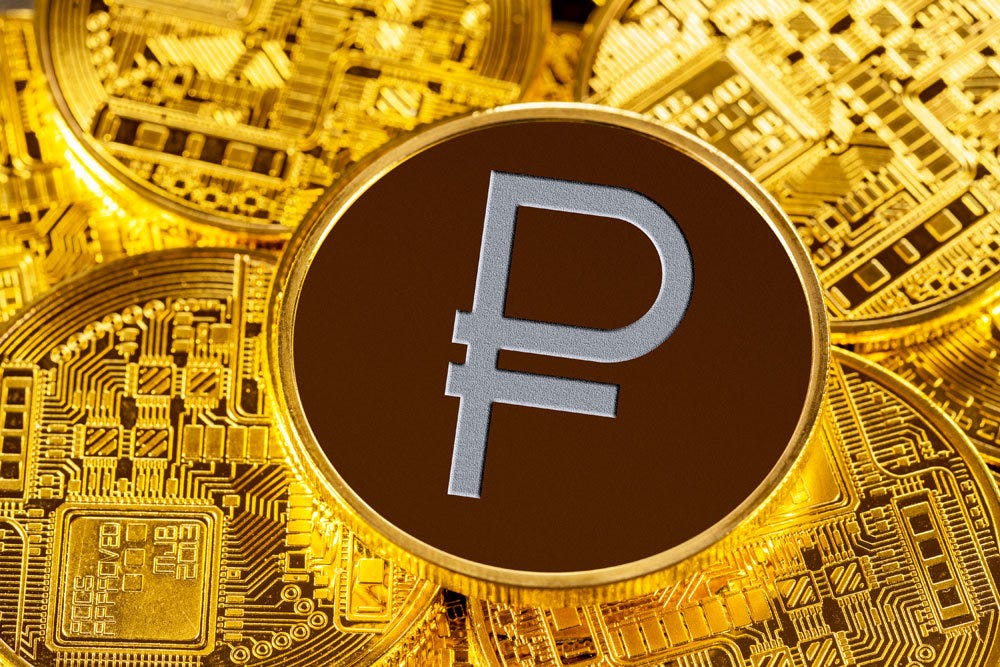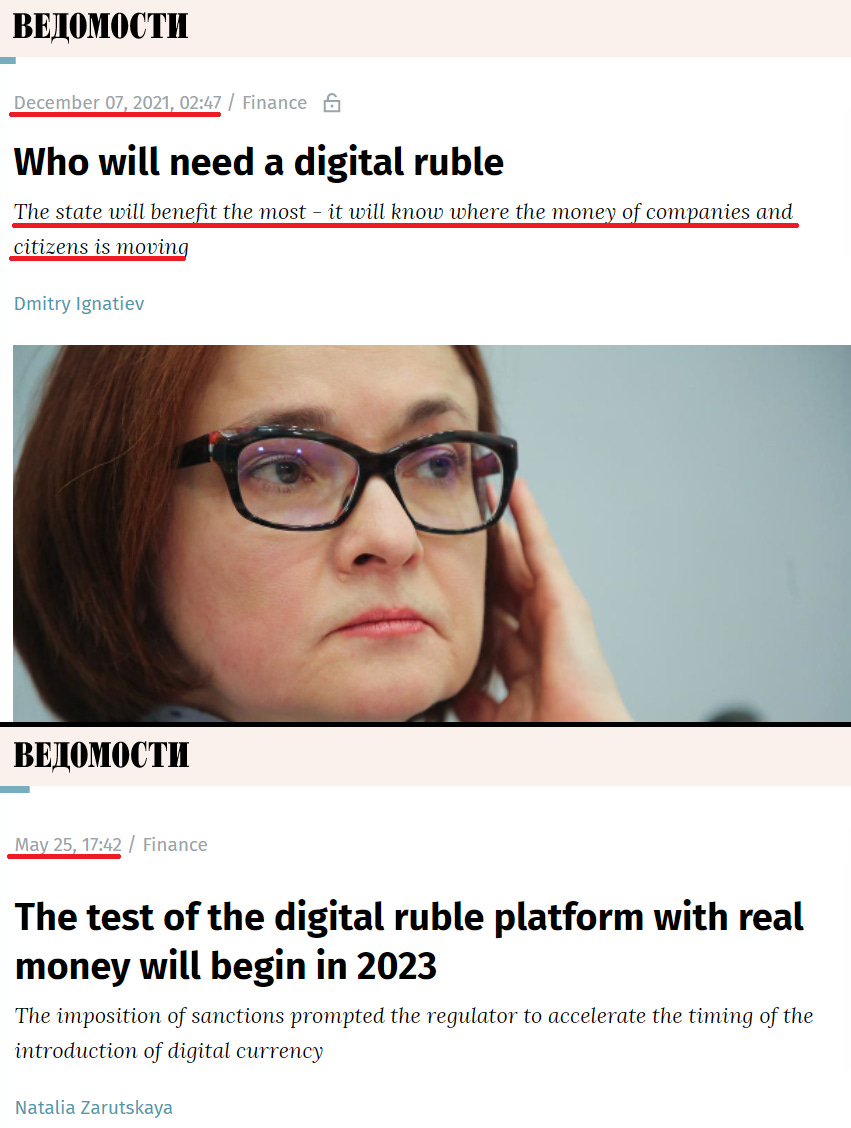The introduction of a trackable digital currency has been prioritized due to sanctions

“The digital ruble will also ensure the transparency of the terms of payment services, since it will allow tracking the targeted spending of funds by citizens, representatives of Promsvyazbank, Sberbank and Russian Standard Bank note.” Sigh.
Citing the imposition of western sanctions, the Bank of Russia announced on Wednesday that it was accelerating the rollout of its Central Bank Digital Currency (CBDC). The first stage of testing for the digital ruble began in January and was originally supposed to finish in 2024. Under the newly released roadmap, phase two—in which the programmable, trackable digital token will be integrated, small-scale, into “real money” operations—is now slated to start in April 2023. Vedomosti (Russia’s Wall Street Journal) has the details:
“Seeing the pace at which we are now going, we assume that from April next year we will be able to start a pilot on real clients and real operations,” said First Deputy Chairman of the Central Bank Olga Skorobogatova at a meeting of the regulator with bankers. […]
At the end of this year, the regulator will send documents on regulating the digital ruble to the State Duma Committee on the Financial Market in order to be able to launch the second stage of piloting in April 2023, Skorobogatova said.
The creation of a prototype of the digital ruble platform was completed in December 2021. 12 banks are participating in the first pilot: Ak Bars, Alfa-bank , Dom.RF , VTB , Gazprombank , Tinkoff Bank , Promsvyazbank (PSB), Rosbank , Sberbank , SKB-bank , Soyuz and TKB. Testing of the digital ruble platform began in January 2022, and at the first stage, the issuance of a digital ruble, the opening of digital wallets by banks and citizens, as well as C2C transfers (between individuals) and C2B transfers (from individuals to business – payment by individuals for goods and services). Already on February 15, PSB and VTB were the first to successfully transfer digital rubles between their clients. On February 18, the head of the Central Bank, Elvira Nabiullina, reported that five credit institutions are now testing the system, and the rest will connect as they fine-tune their IT structures. […]
For Q2 2023, the regulator also plans to develop protocols for the interoperability of the digital ruble with the national digital currencies of other countries, in particular the Eurasian Economic Union and the CIS. The development of such protocols will make it possible to make cross-border payments and open a second communication channel between banks, in addition to the Central Bank’s Financial Message Transmission System, and will also make it possible to bypass SWIFT in such operations.
A new financial infrastructure that will be free of western meddling: very cool. But is it cool, really? Again, Vedomosti:
The digital ruble will also ensure the transparency of the terms of payment services, since it will allow tracking the targeted spending of funds by citizens, representatives of Promsvyazbank, Sberbank and Russian Standard Bank note. […]
Blockchain consultant and cryptocurrency researcher Denis Smirnov is critical of the idea of the Central Bank: “For people, the introduction of the digital ruble is the realization of the most terrible scenarios described by science fiction writers in dystopias.” According to the expert, with the advent of the digital ruble, absolute transparency will reign in the field of personal finance, which means that the human right to privacy will be under attack.
Oh. Okay.

Like the gold-pegged ruble that never existed, only better.
In December, your humble Moscow correspondent warned that the Bank of Russia was up to all kinds of trickery. Then, on February 18, we typed up a blog post about how Russia was using the threat of western sanctions as a pretext to accelerate the adoption of the digital ruble.
By the way: undoubtedly, CBDCs will make cross-border transactions more convenient and less of a hassle for Russia (at least when doing business with friendly states).
But does that justify the zero-privacy, total-centralized-control financial system that is being created? An interesting question.
The central bank takeover of RussiaCentral banks. They’re a touchy subject for a lot of people and with fairly good reason. Like all other central banks, the Bank of Russia enjoys a special legal status making it independent from the Russian government while simultaneously giving it access to the full machinery of state power in order to carry out and enforce its wish…Read more
Russia will adopt CBDCs, citing the need to shield itself from western sanctions. Whatever.
The West will adopt CBDCs, citing the need to crack down on domestic terrorism financing, or Patreon payments to people with unapproved ideas, or whatever. It doesn’t matter.
It won’t matter what the justifications will be. The pretexts will be different, but the system will be exactly the same. And the system is going to suck for everyone.
It’s sort of like Post-Sanctions Russian McDonald’s: it’s literally McDonald’s, but with a different name.

